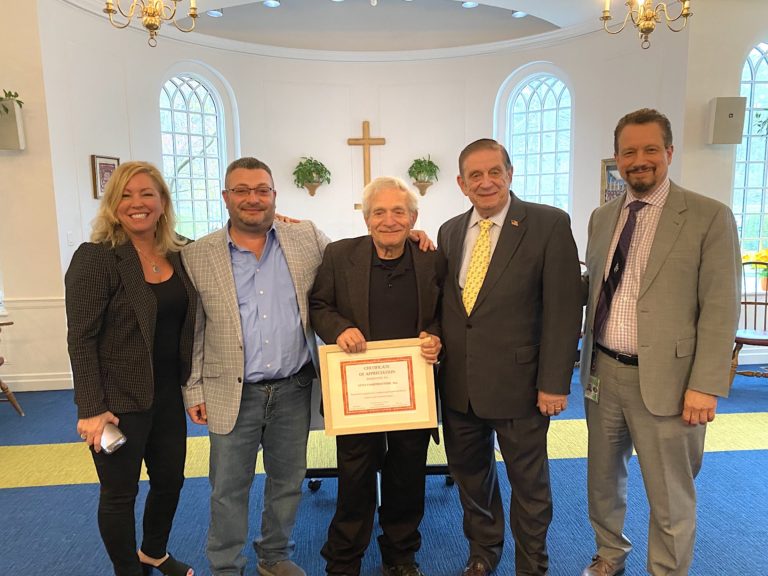
By Drew Williams
No matter who you are, autumn is typically full of change: new schedules, the return to old schedules, back to school, new colleges, new jobs, new commitments, shorter days, cooler weather, less free time. So, it’s really not surprising that many people feel anxious in the fall. We live in fear, or at least very close to its borders, and when we live in fear — like the autumn foliage that grows beneath our feet — everything rustles! But this time of year (or in any season), who wants to live like that? We need a new kind of relationship with the Father, one that drives out fear and mistrust, anxiety and guilt. The apostle John wrote, “See what kind of love the Father has given to us, that we should be called children of God; and so we are. . . . Beloved, we are God’s children now” (1 John 3:1a, 2a). What would your life look like if your identity truly rested upon God’s relentless, tender, compassionate love for you? What if you believed that nothing could separate you from the love of God in Christ Jesus? What if you knew, absolutely and confidently, that YOU were the beloved?
In his book, Abba’s Child, Brennan Manning writes, “God created us for union with Himself: This is the original purpose of our lives. And, as God is defined as love” (1 John 4:16). Living in awareness of our belovedness is the axis around which the Christian life revolves. Being the beloved is our identity, the core of our existence. . . . It is the name by which God knows us and the way He relates to us.”
Speaking with the Father’s own heart, writer and theologian Henri Nouwen put it this way: “All I want to say to you is, ‘You are the Beloved,’ and all I hope is that you can hear these words as spoken to you with all the tenderness and force that love can hold. My only desire is to make these words reverberate in every corner of your being — ‘You are the Beloved.’” How does that reality come alive in our hearts? In truth, it takes a profound work of God to accept that God is relentlessly tender and compassionate toward us. How might God convince you that you are and always will be the beloved? Let me suggest a three-fold invitation:
Firstly, the Lord invites us to trust the Word of the Father. The Word of God tells us that we really can trust Him. Indeed, the essence of the Father’s nature is compassion. The heart of the Father is defined by His tenderness toward us. Luke records this astounding truth about God’s heart, spoken by the priest Zechariah: “…because of the tender mercy of our God, whereby the sunrise shall visit us from on high to give light to those who sit in darkness and in the shadow of death, to guide our feet into the way of peace” (Luke 1:78-79).
You may be thinking that to form this view of the Father is, perhaps, to cherry pick the good bits from the Bible. After all, there are passages in the Old Testament that depict God as rather angry. Let’s pick any of a number of prophets! How about Hosea? Through the words of this prophet, God likens Israel to a wife who has given herself over to prostitution. Where is the love and tenderness in that description? What we have to remember is Israel’s earliest understanding of God is based on the covenant, “You will be my people and I shall be your God.” Yahweh is therefore a personal, relating being. In this way, Israel’s concept of God is vastly superior to that of the pagans. Pagan gods were fickle, capricious, erotic, and unpredictable. They were identified as forces to be reckoned with, like wind, storm, fertility, and so on. Israel knew a God that somehow transcended everything that was visible. The book of Exodus depicts God as a stable, interested sort of God, a calm, rock-like God. The Israelites understood and appreciated God’s qualities of interest, fidelity, and stability. The Father’s warmth and tenderness were as yet beyond their comprehension. Israel’s understanding of God needed clearer definition.
And yet, despite their developmental challenges, we do see the Father’s love and mercy leaking through the Old Testament. In Hosea, God’s rebuke followed His people’s scandalous infidelity. If we look closely, however, we can hear the Father’s desire to remain faithful even in the face of heartbreaking unfaithfulness: “I will heal their waywardness and love them freely…” (Hosea 14:4a).
Rolling the clock forward, we come to a dusty road where Jesus has just written with his finger on the sand, and a woman kneels weeping. The woman has been caught in the very act of adultery. Out of the same tender, compassionate heart, came the desire to forgive this broken woman, not to stone her. “Jesus stood up and said to her, ‘Woman, where are they? Has no one condemned you?’ She said, ‘No one, Lord.’ And Jesus said, ‘Neither do I condemn you; go, and from now on sin no more’” (John 8:10-11).
In Jesus we have the fullness of the revelation of God’s compassion and tenderness, love and mercy. If it feels like our relationship with God is oscillating around our circumstances, the Father would encourage us to take Him at His Word; TRUST the reality of His tender compassionate love as it is written, not through the lens of our circumstances. However bad we feel, however precarious our situation in the depths of our pain and disappointment,
truly nothing can separate us from His love.
Secondly, the Father would encourage us to accept the work of His Son. And, that is really all about the Cross. The Cross reveals that Jesus has conquered sin and death and that nothing, absolutely nothing, can separate us from the love of God in Jesus Christ. But to live in that reality is to accept two things:
a) I must accept my sin: What happened to my being the beloved? What’s with all the sin? The French poet Paul Claudel once stated that the greatest sin is to lose the sense of sin. We see ourselves as basically nice, benevolent people with minor hang-ups and neurosis that are the common lot of humanity. We rationalize and minimize our terrifying capacity to make peace with evil and thereby reject all that is NOT nice about us. The paradox: to know, really know, our identity as the beloved we need to lay hold of our true selves and our need of God’s forgiveness. If we gloss over our selfishness and rationalize the evil within us, we can only pretend that we are sinners and therefore only pretend we have been forgiven. Unless I come face to face with my inherent sinfulness, mixed motives, and selfish desires, I cannot grasp the measure of God’s love for me in the Cross. “He who did not spare his own Son, but gave Him up for us all — how will He not also, along with Him, graciously give us all things? Who will bring any charge against those whom God has chosen? It is God who justifies. Who then is the one who condemns? No one” (Romans 8:32-34a). So, if we are not condemned, what of our sin then?
b) I must accept that I am loved by God despite my sin: Only to the one who loves you fully can you expose your worst. Getting honest with ourselves does not make us unacceptable to God. It does not distance us from God. It draws us to Him as nothing else can, because the result of that honesty will always be to open us anew to the flow of His grace. It is only through grace that any of us could dare to hope that we could become more like Jesus.
In addition, we receive the witness of the Holy Spirit. Quite literally, the Holy Spirit is the Spirit of Jesus. He is the bond of tenderness between the Father and us. “For those who are led by the Spirit of God are the children of God….And by him we cry, ‘Abba, Father.’ The Spirit himself testifies with our spirit that we are God’s children” (Romans 8:14, 15b-16). And so, in receiving His Spirit, we are invited to live in the security of His love and tenderness.
His tenderness awakens within us the security of knowing that we are thoroughly and sincerely loved by God, and that experience of His love banishes our fears. The Lord says to us, “For I am the Lord your God who takes hold of your right hand and says to you, ‘Do not fear; I will help you’” (Isaiah 41:13). And by the Spirit we dare to believe that, through the Cross and resurrection of the Son, this extraordinary love and tenderness is actually being directed at us.
And, so it’s all about me? Well, initially, yes! Having received so much from God, our needs are met in all but one way — that is, our need to share our experience of His love. The same Spirit that causes us to say, “Abba – Father” turns us outward to a hurting world, where we then extend His love, mercy, and compassion. John reminds us, “There is no fear in love, but perfect love casts out fear” (1 John 4:18a). It occurred to me how fearless I become when I am swept up in God’s perfect love for another. Indeed, some of the most courageous people I know are those who have been caught up in God’s love for the marginalized and the oppressed. What would it be like for my life to be caught up in such a fearless, passionate love? What would it look like as a church family if we were all swept up in a love that was so passionate for a hurting world that it pushed past all our earthly fears — including the post-Labor Day blues?




